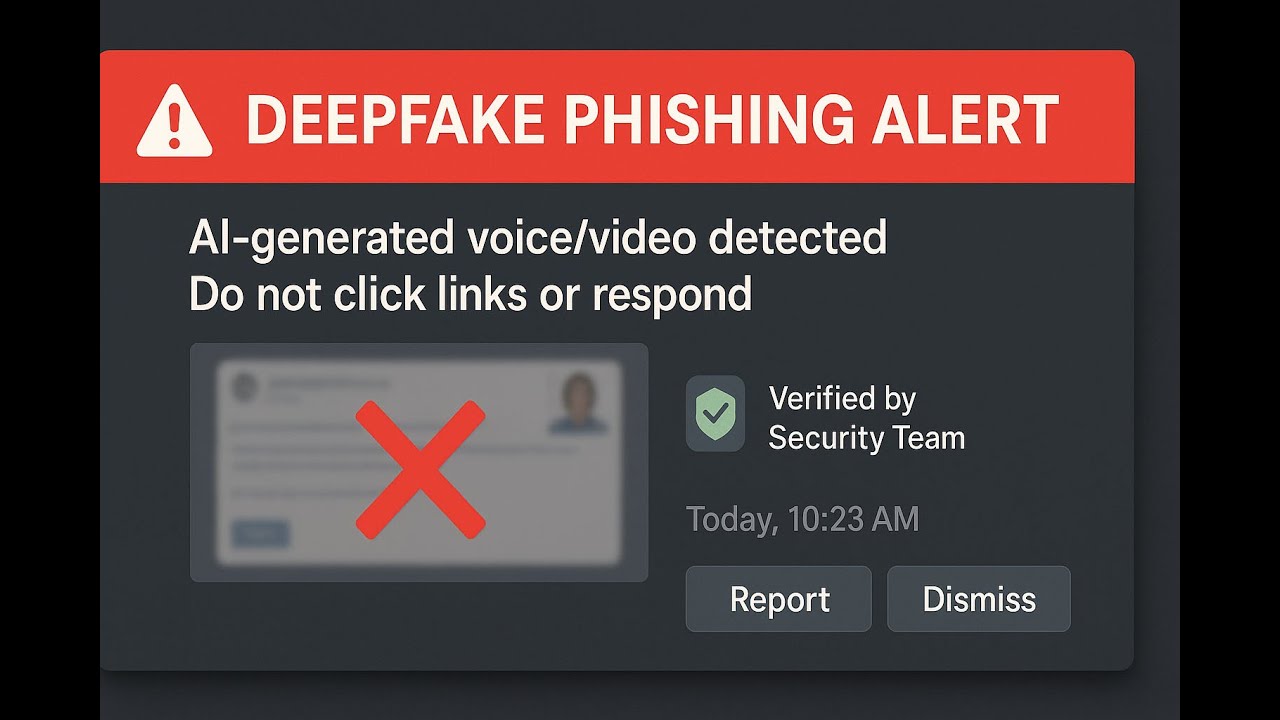Technology continues to advance at an incredible pace — but unfortunately, so do cybercriminals. One of the most alarming new trends in cybersecurity today is the use of deepfake technology in phishing and business email compromise (BEC) attacks.
What Are Deepfake Phishing Scams?
Hackers are now using AI-generated voices and videos to impersonate real employees — or even invent fake ones — to trick organizations into transferring money or sharing confidential data.
In one shocking case reported by CNN, a finance employee in Hong Kong joined a video call with what appeared to be their company’s CIO. The call looked and sounded real, but the executive didn’t actually exist. By the end of the conversation, the scammers had convinced the employee to transfer $25 million into their account.
This new wave of attacks represents a dangerous evolution of business email compromise (BEC), where attackers gain access to a company’s email system, study internal communication styles, and then use deepfake AI tools to replicate voices, faces, and writing tones.
Real-World Examples of Deepfakes
Deepfakes aren’t just used for scams — they’re also popping up in entertainment and social media. Alan shared a few examples:
-
A fake video of a Bugatti Bolide racing a Formula 1 car looked so real that most viewers couldn’t tell it was AI-generated. But the aggressive driving and unrealistic physics gave it away.
-
A viral clip of two young children “boxing” appeared authentic until closer inspection — the reactions and behavior didn’t match how real kids would respond to being hit.
These examples highlight a key point: if something feels “off,” trust your instincts.
How to Protect Yourself and Your Business
-
Be Skeptical of Unusual Requests
Even if an email or video call looks legitimate, verify it through a separate communication channel before taking action. -
Use Multi-Factor Authentication (MFA)
MFA helps protect accounts even if hackers manage to steal passwords. -
Train Employees to Spot Deepfakes
Include deepfake awareness in your security training programs. Employees should know how to question suspicious communications and escalate concerns. -
Implement Verification Protocols
For financial transactions, always require secondary approvals and confirm details verbally with known contacts.
The Bottom Line
Deepfakes are becoming more convincing every day — and that means cybersecurity awareness has never been more critical. At ADS Consulting Group, we help organizations stay one step ahead of these emerging threats through comprehensive security assessments, employee training, and proactive monitoring.
Stay safe out there — and don’t get deepfaked.

